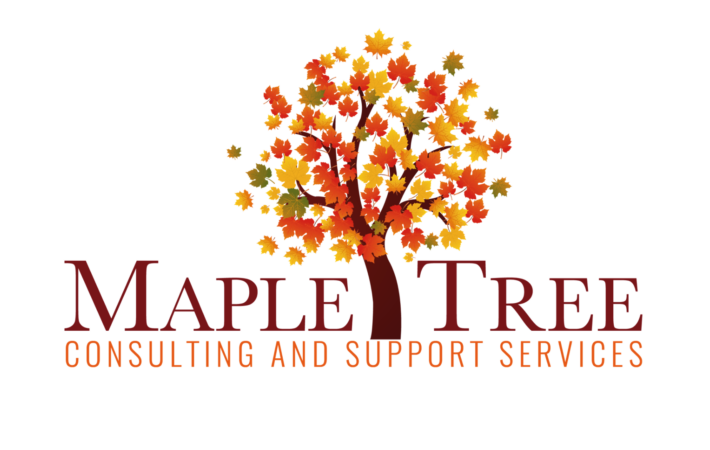Registered Psychologist / Clinician
Job Title: Registered Psychologist / Clinician
Job Type: Permanent, 0.8 – 1.0 FTE (32-40 hours weekly)
Location: On-Site / In-Office
Compensation: $65.00 – $85.00 CAD per hour, Paid Vacation, Eligible for Company Benefits available after probationary period.
Shift Schedule: Monday–Friday (Rotating shifts), Weekend & Evening availability as needed. (Flexible scheduling options to meet program needs while allowing for adaptable work arrangements).
Are you looking for an opportunity to utilize your strong psychological and clinical assessment skills working within a multi-disciplinary team of professionals, focused on making a difference in the lives of children, youth, and families? Maple Tree Consulting provides support to youth ages 10-17 who are facing emotional, psychological, mental health, and behavioral challenges. We work closely with Alberta’s Children and Family Services and other partner agencies, offering services including Family Support, Transportation/Access, and Residential Group Care.
We are seeking a skilled Registered Psychologist / Clinician to join our team. This role provides flexibility in scheduling to accommodate both program needs and adaptable work arrangements.
ROLES AND RESPONSIBILITIES:
- Assessment and Evaluation: Initial and ongoing assessments to evaluate the mental health, emotional, and behavioral needs of each resident. This includes identifying any specific disorders, trauma, or developmental issues that need attention.
- Individual Therapy: Providing regular psychotherapy sessions tailored to the individual needs of the youth. This could involve various therapeutic techniques such as cognitive-behavioral therapy (CBT), trauma-informed therapy, or other modalities suitable for the youth’s specific issues.
- Crisis Intervention: Being trained and ready to respond to mental health crises, which could involve de-escalation techniques, and coordination with staff for immediate support.
- Treatment Planning: Developing, reviewing, and updating individualized treatment plans in collaboration with other professionals and the resident’s family. This includes setting goals, choosing therapeutic approaches, and planning for discharge or transition.
- Family Therapy and Involvement: Engaging families in the treatment process through family therapy sessions, educational meetings, and regular updates on the resident’s progress. This is important for ensuring continuity and support in the resident’s environment.
- Behavioral Management: Collaborating with staff to implement effective behavioral management strategies. Involving training staff on appropriate responses to behavioral issues and ensuring interventions are consistent and supportive.
- Consultation and Training: Offering consultation to staff on best practices in youth mental health care and providing ongoing training on topics such as trauma-informed care, suicide prevention, and recognizing signs of abuse or neglect.
- Coordination of Care: Coordinating with external stakeholders like schools, social services, and health care providers to ensure comprehensive support and continuity of care for the residents.
- Supporting the roll of the Children and Residential Experiences (CARE): Creating Conditions for Change program model, this a partnership with Cornell University. The CARE program model is designed to enable community child welfare and mental health professionals to organize and deliver congruent and quality care in the best interests of children and families according to six research and evidence-based principles. These six research and standards-informed principles are designed to guide staff’s practice and interactions with children in order to create the conditions for change in children’s lives. The research-informed principles support care and treatment that is developmentally focused, family involved, relationship based, competency centered, trauma informed, and ecologically oriented. These best practices principles are grounded in theory, in evidence-based practices, in practice wisdom, and in childcare standards.
- Therapeutic Crisis Intervention System (TCI): Residential Child Care Project – Cornell University. The TCI system, developed in 1980, is a comprehensive crisis prevention and management system designed to significantly reduce the necessity for physical management of children. For TCI to be an effective crisis management system, the following six general domains need to be addressed: leadership and program support, child and family inclusion, clinical participation, supervision and post crisis response, training and competency standards, and incident monitoring and feedback.
Clinical oversight including but not limited to:
- Weekly case consultation with staff to develop and review individual therapeutic care plans and individual care plans to include emotion regulation tools/skills and trauma-informed practices that best support each client.
- Integrating core concepts taken from developmental, humanistic and family systems theories into interventions using trauma-informed practices.
- Introducing and practicing emotion regulation/coping skills, attachment activities to build and strengthen healthy attachments, routine and consistency development and implementation, and capacity building in crisis management.
- Conducting risk assessments for children/youth reporting thoughts of suicide/self-harm and development of safety plans with recommendations for follow up as needed.
- Providing staff development/training to enhance skills to better support the children/youth in their care.
- Providing resources to staff to better support the children and youth in their care.
- Demonstrating professionalism and effective case management skills (e.g., timely reports).
- Developing and recommending resources for use in the programs.
- Reviewing documentation for quality, confidentiality, and professionalism.
- Attending staff meetings, intake meetings, assessment debriefs, and service team meetings to support the team with strengthening the well-being, safety and growth of the children/youth in their care, through information gathering, addressing concerns, and treatment planning.
QUALIFICATIONS AND EDUCATIONAL REQUIREMENTS:
- Strong clinical skills in assessment and goal plan formulation with treatment plans
- Working knowledge of medical terminology
- Related theoretical knowledge of childcare practice, assessment, treatment, and behavioral management
- Exceptional written and verbal communication skills
- Experience working with children and youth who have mental health challenges and/or clients who are victims or perpetrators of sexual abuse
- Experience providing therapeutic interventions with youth and their families, experience with trauma informed interventions and the neurobiology of trauma and attachment disorders
- Ability to utilize empirically validated, trauma informed practices and other evidence-based treatment modalities
- Minimum 5+ years of clinical experience working with children, youth, and families in mental health settings.
- Master’s Degree in psychology
- Registered Psychologist with the College of Alberta Psychologists, in good standing.
- Ability to supervise provisional psychologists
- Must possess Professional Liability Insurance or willingness to obtain insurance
- Clear criminal record and vulnerable sector check
- CYIM check
- Valid Driver’s License
- Current Certification in First Aid with CPR and Suicide Intervention
Final candidates will be required to undergo security screening and verification of academic credentials. Registration with the College of Alberta Psychologists Association or other provincial licensing body will be verified.
How To Apply:
Applicants are advised to provide information that clearly and concisely demonstrates how their qualifications meet the advertised requirements, including education, experience, and relevant examples of required competencies.
We thank all applicants for their interest. All applications will be reviewed to determine which candidates’ qualifications most closely match the advertised requirements. Only individuals selected for interviews will be contacted.


